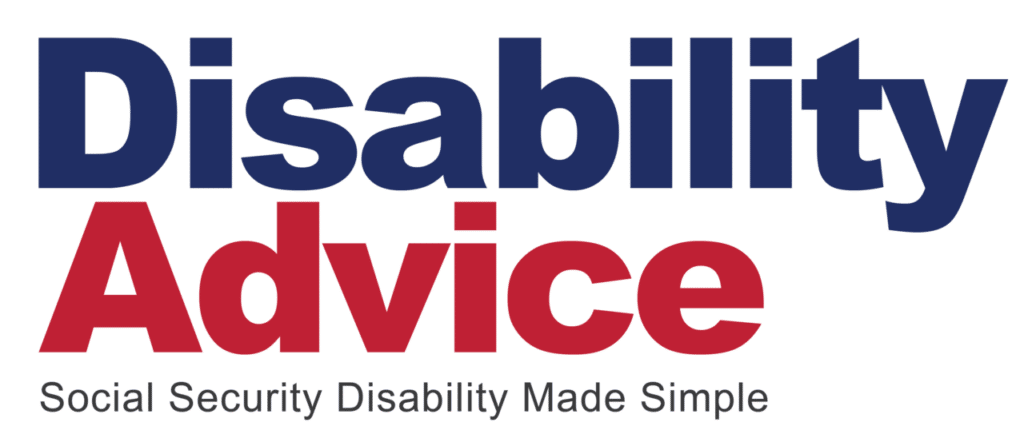Can You Get Disability for Crohn's Disease?
Many people seek answers regarding disability benefits for their existing condition, such as Crohn’s Disease. Learning about and applying for Social Security Disability Insurance, SSDI, or Supplemental Security Income, SSI, can be a complex and confusing process.
The compassionate team at Disability Advice can help. We can connect you with an experienced and knowledgeable advocate who can help you collect vital medical and employment documentation and assist with the application process. Call our office today to schedule an initial consultation.
What is Crohn’s Disease?
Crohn’s Disease is an inflammatory bowel disease, or IBD, that causes chronic swelling and irritation of tissue in the gastrointestinal tract. This condition can cause symptoms such as abdominal pain, diarrhea, fatigue, and weight loss.
How Crohn’s Disease Affects Work and Daily Activities
When it comes to daily life and holding a job, individuals with Crohn’s Disease may experience challenges with unpredictable flare-ups and chronic symptoms. The condition’s physical and mental impact can make it difficult to maintain employment and perform routine tasks, ultimately affecting overall quality of life.
Social Security Administration’s Criteria for Disability
To be eligible for SSDI or SSI benefits, you must be unable to engage in substantial gainful activity due to a medically determinable physical or mental condition. This condition must be expected to last at least 12 months or result in death.
In addition, your work history must demonstrate that you have paid enough into the system through payroll taxes to qualify for SSDI benefits. However, SSI is a needs-based program that pays low-income individuals with disabilities. Thus, there is no work history requirement.
Listing 5.06 Criteria
The Social Security Administration assesses Crohn’s Disease under Listing 5.06 of its Blue Book, which covers inflammatory bowel disease.
To meet the Blue Book definition of IBD, an individual must have a documented diagnosis and satisfy the requirements for A, B, or C below:
A. Obstruction of stenotic areas in the small intestine or colon requiring two hospitalizations for intestinal decompression or surgery, within 12 consecutive months, and at least 60 days apart.
B. Two of the following complications occurring at least 60 days apart within 12 consecutive months:
- Anemia with hemoglobin of less than 10.0 g/dL
- Serum albumin of less than 3.0 g/dL
- Clinically documented tender abdominal mass with abdominal pain or cramping
- Perineal disease with draining abscess or fistula
- Involuntary weight loss of at least 10% from baseline
- Need for nutritional support, such as daily enteral nutrition via a feeding tube or parenteral nutrition via IV
C. Repeated complications of IBD, occurring on average more than three times a year, or once every four months, and each lasting over two weeks, with marked limitation in at least one of the following:
- Daily living activities
- Social functioning
- Deficiencies with concentration, persistence, or pace that interfere with completing tasks
Qualifying Through a Medical-Vocational Allowance
An applicant not meeting the Blue Book listing may still qualify based on a medical-vocational allowance if your condition meets the SSA’s medical-vocational criteria and you are unable to perform any relevant past work or substantial gainful activity. The SSA will consider your residual functional capacity, or RFC.
Understanding Residual Functional Capacity
RFC evaluates the maximum work-related activities an individual can perform despite their limitations, considering their physical abilities, mental capabilities, and other relevant restrictions. Symptoms such as frequent urination, fatigue, and pain can hinder the ability to consistently perform work tasks, and thus will be considered in the RFC assessment.
The Application Process for SSDI With Crohn’s Disease
The application process involves the following steps:
- Preparing Your Application: Gather detailed medical records, treatment history, work history, and documentation showing how Crohn’s disease impacts your ability to work.
- Submitting the Application: You can apply online at SSA.gov, by phone, or in person at your local Social Security office, and you may opt to have a representative assist you in filing.
- What to Expect After Applying: The SSA will evaluate your medical evidence and possibly request additional documentation or a consultative exam. Once a decision is reached, the agency will notify you by mail, usually within three to six months. If your claim is denied, you can appeal your case through several stages.
Secure the Benefits You Deserve for Crohn’s Disease
Applying for SSDI for Crohn’s disease can be difficult. However, knowing the requirements and preparing well can increase your likelihood of approval. If you require help, the team at Disability Advice is ready to support you throughout the process. Contact us today to schedule a meeting with a team representative.
Frequently Asked Questions About SSDI and Crohn’s Disease
Can I Work Part-Time And Still Receive SSDI Benefits?
Yes, you can work part-time and still receive SSDI benefits. However, strict income limits apply. In 2025, you can earn no more than $1,620 per month if you are not blind, or $2,700 if you are blind. If you earn more, the SSA may determine that you can engage in substantial work and terminate your benefits.
What if My Application Is Denied?
If your application is denied, which is common, our team can help you file an appeal. The appeals process includes multiple stages, starting with reconsideration, where you can submit additional medical evidence and strengthen your case for approval.
How Long Does It Take To Receive a Decision?
The initial decision can take anywhere from three to six months. However, if your case is denied and you choose to appeal, reconsideration can take an additional two to four months. If your appeal proceeds to a hearing after reconsideration, it can take eight to 24 months, depending on your location and backlog. Our team can help avoid delays by ensuring all correct documentation is submitted from the outset, decreasing the risk of denials.
- Free case evaluation
- Assist with denied claims
- Ensure you have all documents
- Make the process easy for you

“Professionalism at its best. From intake to getting my claim started, they are the ones you need. 100% recommend to everyone.”
Pablo P.

“Having never gone through this process before, it was very easy and straightforward. VERY professional and polite.”
Alan A.

“I had a great experience with my representative. She was very friendly and she made the process very easy. I’m glad I had the pleasure to work with her in filing my claim. She provided great customer service.”
Dana C.

“I was very nervous about reaching out for help with disability benefits. This experience was so much easier than what I thought it would be. They were understanding and supportive, and answered all of my questions. I would highly recommend them.”
Alice P.

“One of the best customer service experiences I have ever had. Patient and kind and couldn’t of made my experience better. Thank you for all the help.”
Jama M.

“I was very pleased and impressed by the advocate. I feel that my chances of receiving my disability benefits are more likely to come in a timely manner.”
Danny C.
Fill in the form below and let us know how we can help you!
"*" indicates required fields

“Professionalism at its best. From intake to getting my claim started, they are the ones you need. 100% recommend to everyone.”
Pablo P.

“Having never gone through this process before, it was very easy and straightforward. VERY professional and polite.”
Alan A.

“I had a great experience with my representative. She was very friendly and she made the process very easy. I’m glad I had the pleasure to work with her in filing my claim. She provided great customer service.”
Dana C.

“I was very nervous about reaching out for help with disability benefits. This experience was so much easier than what I thought it would be. They were understanding and supportive, and answered all of my questions. I would highly recommend them.”
Alice P.

“One of the best customer service experiences I have ever had. Patient and kind and couldn’t of made my experience better. Thank you for all the help.”
Jama M.

“The person I spoke with was very knowledgeable and very thorough with answering all of my questions and making sure all my information was correct. He was very patient, kind, and was very helpful. I wasn’t sure if I would qualify, and he checked and took all of my information. The process was made very easy, thank you so much for your help.”
Patrice I.


